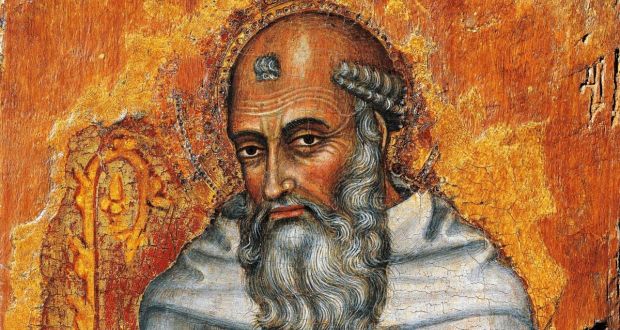THE Benedict Option – or How to Save Christianity
By Breda O'Brien
Lots of Christians wonder how it will be possible to raise their children in the faith in a wider culture that often actively undermines their values. Rod Dreher, who is speaking in Dublin this coming Monday at the Newman Centre for Faith and Reason, believes he has an answer, one which he calls the Benedict Option. He is an American writer, editor and prolific blogger – his blog averages more than 1.3 million page views per month. He is a hard man to pigeonhole. He writes for the American Conservative and thinks that Trump has been a disaster for America. He started life as a Methodist, became an agnostic and then converted to Catholicism. Covering the abuse scandals in the American church alienated him from the Catholic Church to the extent that he felt he had to resign his membership. He eventually became an Orthodox Christian, not a very common religious journey, even for an American. He first came to public attention with his 2006 book Crunchy Cons, which articulates a mix of social conservatism and environmentalism. It also has a healthy dose of scepticism about market capitalism, seeing it as a driver for socially corrosive cultural change. His next book, The Little Way of Ruthie Leming, is a painfully honest account of his adored sister who died of cancer. Her life as a middle school teacher and mother was so rooted in her local community that everyone mourned her death. She often went barefoot, so the six burly men who carried her coffin to the grave went barefoot, too. Even in the depths of her illness, she had a list of people she prayed for every day and she created a new family rule: “We will not be angry with God.” Outsider But Dreher had the feeling that his funny, loving sister loved everyone but him. Somehow, by leaving his native Louisiana, he had become an outsider to his family. He moved his own family back to Starhill, where his family of origin still lived, in search of the kind of tight-knit community which his sister found so sustaining. It did not work out. He was just too different, or, as his father once bluntly told him, too weird to slot back into his hometown. Dreher’s quest for strong communities continues with his most recent book, The Benedict Option. It is not named for Pope Emeritus Benedict, although Dreher has tremendous respect for him. Instead, it comes from the Scottish philosopher Alisdair MacIntyre, who in his book After Virtue suggests that moral philosophy has lost its bearings, making it effectively a set of monologues where people only appear to use the same language. MacIntyre speaks about “the new dark ages that are already upon us”, emphasising the need for new forms of local community “within which civility and the intellectual and moral life can be sustained”. MacIntyre notes wryly that “this time, however, the barbarians are not waiting beyond the frontiers – they have already been governing us for quite some time. And it is our lack of consciousness of this that constitutes part of our predicament. We are waiting not for a Godot, but for another – doubtless very different – St Benedict.” Benedict, at a time of upheaval in the fifth and sixth centuries, established 12 monasteries, following a rule which emphasises work, stability, prayer and hospitality. They were centres of charity, learning and civilisation at a time of cultural chaos as the Roman Empire disintegrated. Cold house In response to a culture that is increasingly a cold house for Christians, Dreher suggests that people need to form intentional communities somewhat as Benedict did, where people can send down deep and sustaining roots into the Christian tradition. Otherwise, Christianity will be fatally weakened in a hyper-individualised, consumerist society. Obviously, he is not talking about classical monasticism but about forms of community based on families and single people. Dreher has been accused of wanting people to live in Christian bubbles sealed off from healthy interaction with the world One example he cites in his book is the Tipi Loschi community, a quirky Italian group of Catholic families. They have a school named after GK Chesterton. They run several co-operatives, one of which gives jobs to prisoners to help them to transition back into society. But the Benedict Option also encompasses suburbanites who simply consciously plan to spend more time together in ways that are supportive of their faith. Dreher has been accused of wanting people to live in Christian bubbles sealed off from healthy interaction with the world. In fact, Dreher is acutely aware that living in a bubble is just a slightly slower path to Christianity’s extinction. But he does believe that the current culture is so overpowering that without strongly rooted communities, which not only have an intellectual understanding of but also live out and practice their values, Christianity will sicken and die. At one level, the Benedict Option is simply common sense. But there are lots of questions: not least how you interest people in this who have never heard of St Benedict, much less read The Benedict Option. Will it just be a middle-class club? Perhaps Dreher should not be expected to answer all those questions. A lot of them, I suspect, will just have to be answered in practice.
|
.
Any original material on these pages is copyright © BishopAccountability.org 2004. Reproduce freely with attribution.
